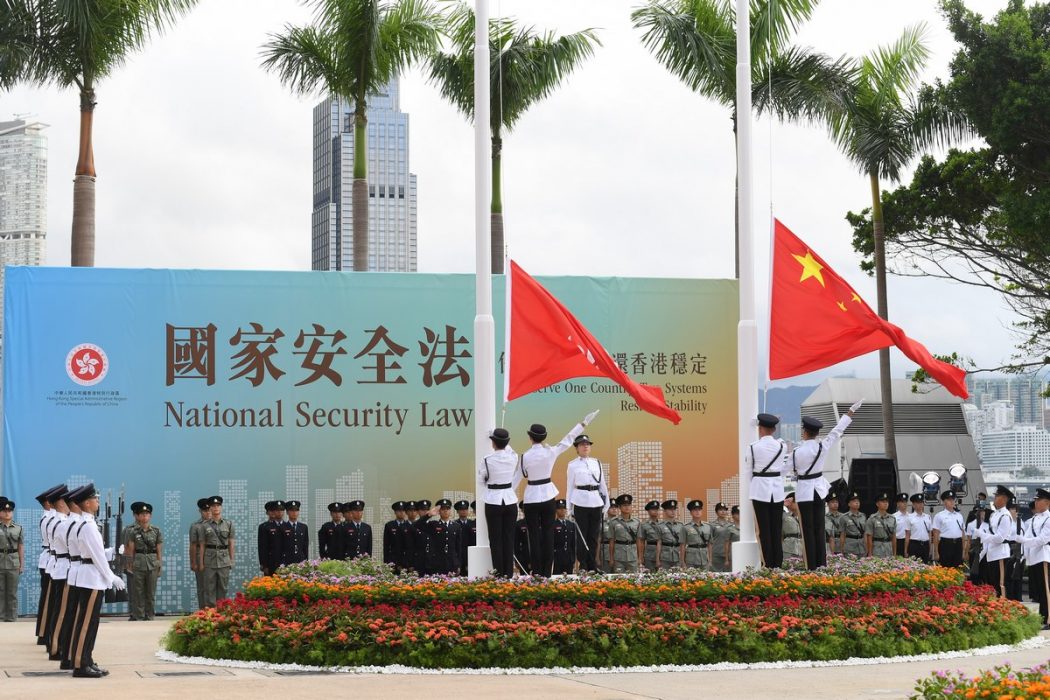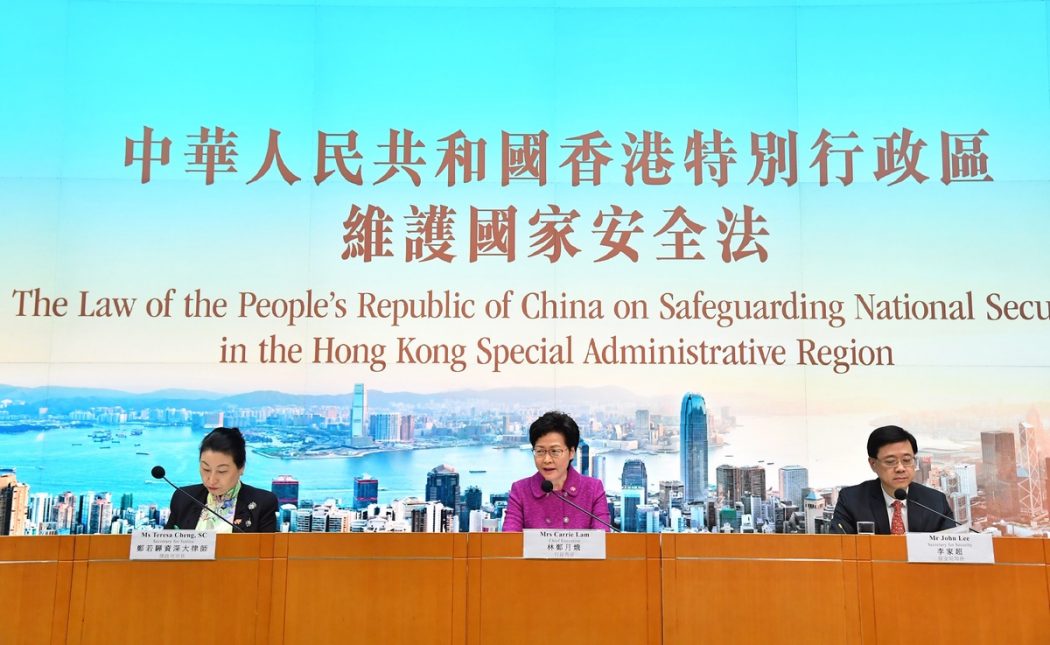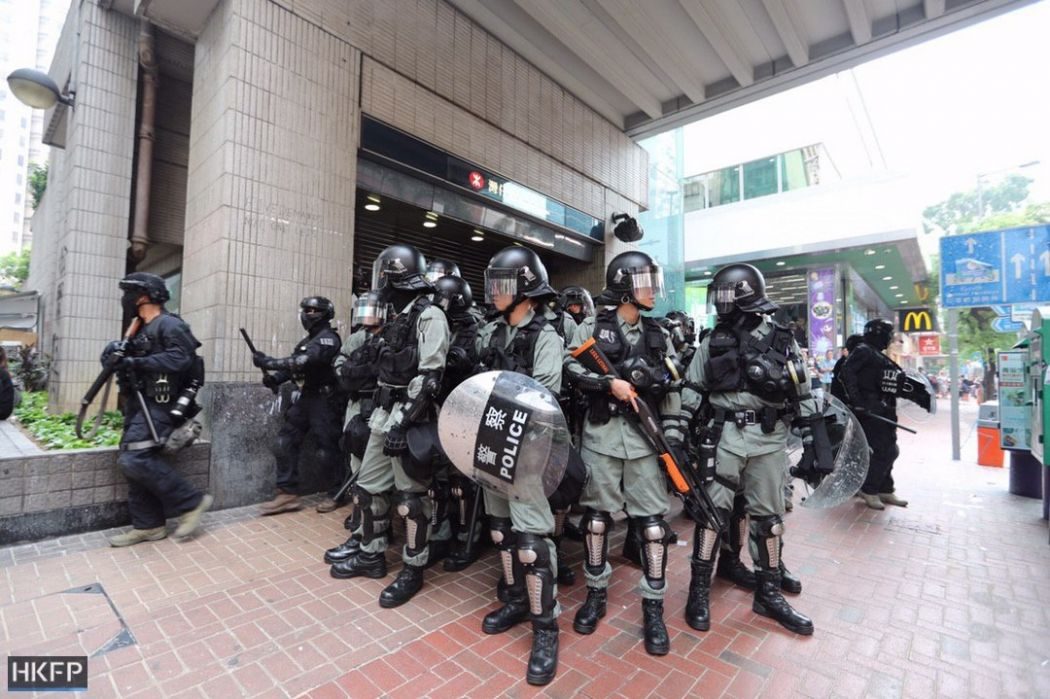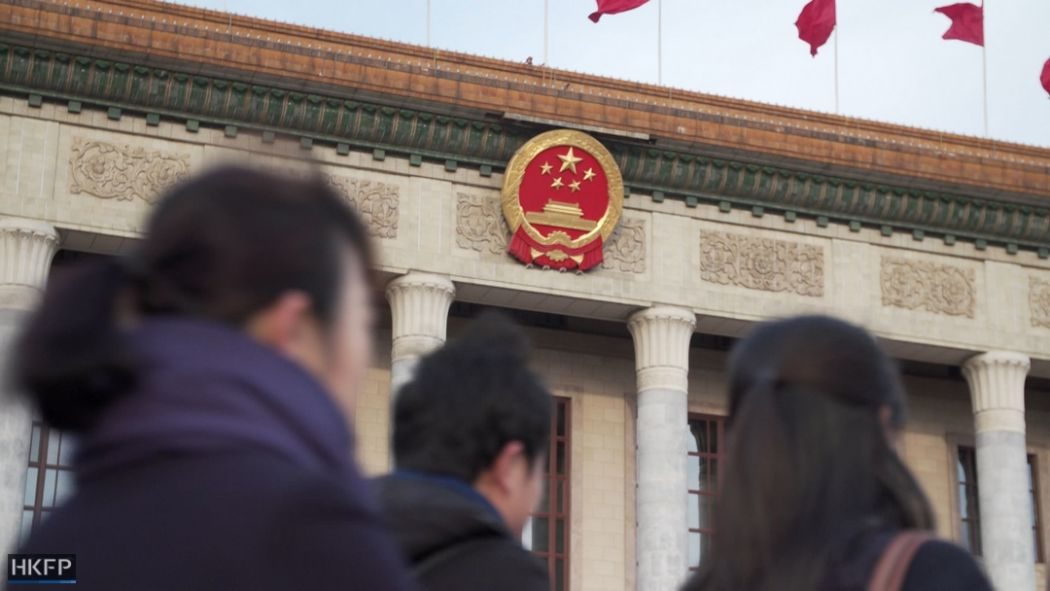Hong Kong media law expert Sharron Fast has told HKFP the text of the newly-enforced national security law is full of socialist legal system characteristics, leaving journalists and media scholars “at a loss” when it comes to predicting where the new red lines are to be drawn.
In a phone interview last Friday, Fast, who teaches at the University of Hong Kong’s Journalism and Media Studies Centre (JMSC), said provisions in the legislation that criminalise secession, subversion, terrorism and foreign interference are “confusing” and “self-contradictory.”

Article 4 – ‘cold comfort’
The JMSC lecturer described Article 4, which stipulates that human rights shall be respected and protected in safeguarding national security in Hong Kong, as “cold comfort.” The provision says that the new national security law ensures the protection of freedom of the press in Hong Kong.
But Fast said the rest of the legal document appeared to “systematically dismantle” the rights and freedoms mentioned. She referenced Article 41, which states the media and the public could not sit in trial of cases involving “state secrets” or “public order.”
“[Article 4] pays homage to the continuity of the rights and freedoms previously enjoyed, but then the entire document goes on to kind of undertake or fundamentally undermine those types of rights,” she said.
Articles 9 and 10 – a ‘broadly crafted’ instrument
Article 9 – under the chapter that describes the duties of HKSAR government bodies in safeguarding national security – states authorities shall take “necessary measures” to strengthen “guidance, supervision and regulation” of the media, over matters concerning national security.

Article 10 also specifies the government shall raise the awareness of Hong Kong citizens about national security and their obligation to abide by the law using the media and the internet.
The “vagueness and broadness” of these two articles are a serious cause for concern, according to Fast. She said it would be difficult to gauge what would constitute the “duty,” thus the provisions speak to the potential that the media might be “over-policed” by authorities.
“Will the government take this as licensed to them to supervise and regulate columns? Will they ask newspapers to remove certain coverage?” she asked.
“We are already seeing a great deal of self-censorship, and I think it is in anticipation of how far the government will go in trying to satisfy this duty that is presently not clearly defined. It is a very broadly crafted instrument.”
‘Need not worry’
Last week, the Foreign Correspondents’ Club (FCC) wrote an open letter to Chief Executive Carrie Lam demanding the government give assurances that press freedom and journalists would be protected from legal risks under the legislation.
Meanwhile, French NGO Reporters Without Borders (RSF) slammed the made-in-China law as “grotesque” and accused Beijing of “stifling” press freedom in Hong Kong.
Responding to HKFP enquiries, the government said Hong Kong residents or journalists “need not worry” as long as they do not contravene the four offences defined under the law.
“The legitimate rights of Hong Kong citizens to exercise their freedom of speech (such as making general remarks criticising government policies or officials) should not be compromised,” the spokesperson said in an email reply last Friday evening.
Secretary for Justice Teresa Cheng also said if members of the press discharge their duties “properly” and produce a fair and objective reporting, it would not be possible for them to brought into the remit of violating legislation.

“In the national security law, there is a very clear requirement of the intent, so if you are objectively, dutifully and professionally reporting the news, there is nothing that is affecting your duties now,” Cheng said at a press conference last Wednesday.
Article 54 – ‘ominous’
Fast expressed worries about potential censorship or propaganda arising from Article 54, which stipulates the central and local authorities shall take “necessary measures” to “strengthen management and services” for foreign news agencies.
She described the clause as “ominous,” as it did not specify the kinds of management actions authorities are entitled to implement. From a “pessimistic view,” Fast said there was a real possibility that the “sanctity” of management will manifest as censorship or propaganda.

“To me, Article 54 relates to the kind of long reach, the long arms. It is seeking to control the voices, not even from within Hong Kong, but from outside of Hong Kong,” she said, adding that foreign journalists and international news organisations may have to think carefully about coming to report in the city in the future.
Article 43 – ‘unfettered’ power
Fast said journalists should also step up digital security measures, including the protection of sources in light of the powers given to law enforcement agencies under Article 43 of the legislation.
Under the law, when handling national security cases, the designated department of Hong Kong police may search a suspect’s electronic devices for evidence. The force may also require a person or relevant service provider to delete information or provide assistance. With the approval of the chief executive, the police may intercept communications and surveil suspects as well.

Fast called it an “empowering” move, which would make it harder for journalists to assure their sources of confidentiality. She also described the clause as giving authorities “unfettered” power to conduct warrantless searches of electronic devices.
“For journalists, what it means is digital security and protection of sources are going to be paramount. This is going to be a brand new, very pressing concern for journalists in Hong Kong, adding overall to the very chilling effect of this law.”
At a press conference last Wednesday, Secretary for Security John Lee dismissed concerns about communication interception, saying it was a common practice in governments across the globe.
“Many, many countries around the world, including western countries, they have executive authorisations to intercept communications in relation to [the] protection of national security. This is not new,” he said.

Eyes would be on internet service providers and social media entities not based in the city; currently, it is very tough to predict how they might respond to the requests of the authorities, Fast said.
HKFP has reached out to Facebook, Instagram and Telegram for comment.
Media ethics
Fast added the risk of exposure to legal consequences under the legislation might force news outlets to make tough editorial decisions, such as whether to use anonymous writers or let contributors remove published pieces retrospectively.

She admitted using anonymous writers and citing unnamed sources would go against traditional media ethics, but under the national security legislation, journalists and media organisations faced a “new frontier” and must reconsider their practices.
“All in all, there is a kind of shocking and bleak portrait of the abilities of this law which cause a good deal of legitimate concerns about the media,” she said. “With the resourcefulness and dedication of Hong Kong journalists, I’m sure will bring us closer to an answer on this question.”
